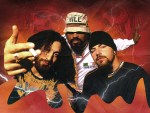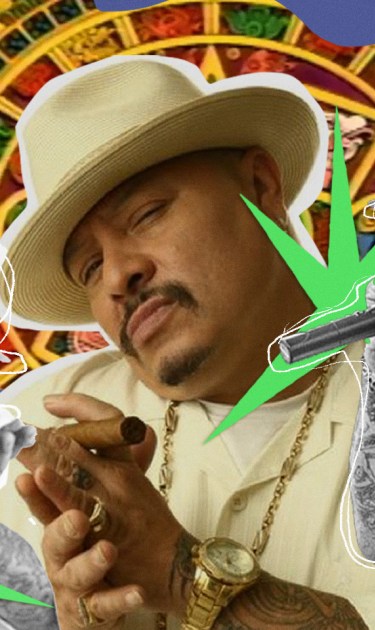Welcome to Ponlo En Repeat where we revisit Latinx music history’s biggest hits, misses, and unbelievable moments while taking at look at how they impact our world today.
______
In 1990, a hip-hop song with lyrics in both Spanish and English made it to the charts, marking a historic event in the U.S. mainstream. The song in question was “Mentirosa” by LA rapper Mellow Man Ace. Looking back, its impact proved to be the prelude to a larger revolution in hip-hop. Another song then sparked a chain reaction that affected the very fabric of the genre and gave a voice to millions of people. That track was “La Raza”, by Ace’s friend and eventual bandmate, Kid Frost.
Latines in hip-hop go way back There was the Rock Steady Crew conformed mostly by Puerto Rican kids, DJ Charlie Chase from Cold Crush Brothers, Devastating Tito and Master O.C. from Fearless Four, Rubie Dee and Prince Whipper Whip of the Fantastic Five and The Mean Machine who made “Disco Dream”—perhaps the world’s first Spanglish hip-hop song. Considering his life story, Kid Frost could be considered another pioneer on the list.

Born Arturo Molina Jr, Frost started rapping in 1982 and landed on venerable breakdance crew/electro pioneers Uncle Jamm’s Army along with other legends in the making, Ice T and Egyptian Lover (Frost’s nickname came from battling T on the regular). His first solo singles, 1984’s “Rough Cut” (produced by future N.W.A. member DJ Yella) and 1985’s “Terminator,” are considered essential electro classics.
Frost dropped out of breakdancing and immersed himself in street life, where he joined gangs and lived a hard life. “The streets weren’t free no more and the music wasn’t so happy no more,” he says in the Netflix docu-series Hip-Hop Evolution. He followed suit, switching up his style. In fact, Frost has been quoted saying that Mexicans were not interested in hip-hop until gangsta rap became a thing. He retreated to backyard parties and lowrider car shows where he would perform directly to his people: Chicanos and Latinos from East L.A. His experiences during these transitional years helped ground his lyricism to his reality.
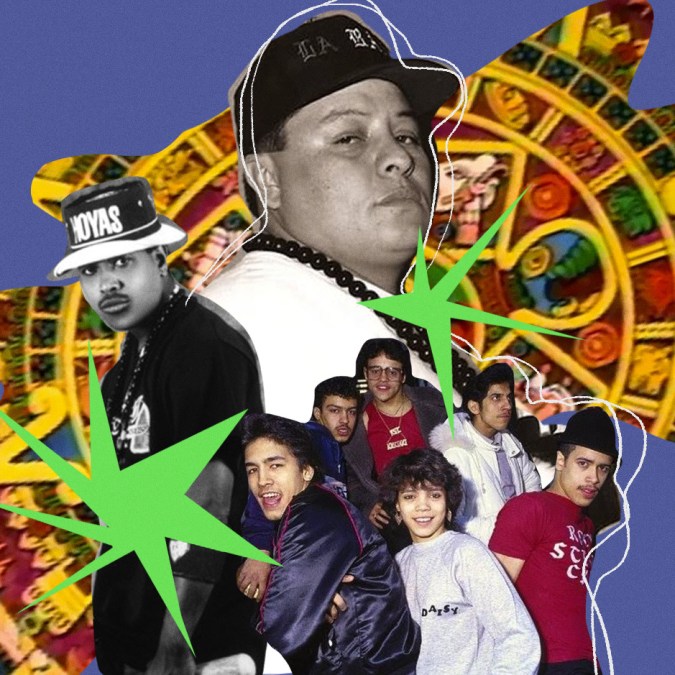
Hooking up with the production team formed around the KDAY radio station in Redondo Beach, CA, Kid Frost recorded his debut album, Hispanic Causing Panic. The album features samples ranging from Black Sabbath and Michael Jackson to Cheech & Chong and War. However, there’s no pussyfooting around “La Raza.” Featuring a beat constructed from El Chicano’s 1970’s track “Viva Tirado,” the song serves as a way to bridge generations of U.S. Latines through music. Lyrically, it also references Chicano poets from the ‘60s and ‘70s who mixed caló with English.
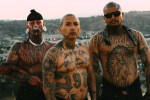
“La Raza” is not a clear cut song and that makes it special; it doesn’t try to preach peace and unity and it doesn’t relish in stereotypes—it dips its toe in both. In 1990, Frost told the Los Angeles Times that the song is “a trip into the mind of a cholo,” mixing up Mexican-American slang or caló with gangsta rap imagery and macho posturing to paint a picture of what it feels like to be who you are. From day one, Frost insisted that violent imagery is a metaphor for breaking through negativity. But the word choices can’t be ignored, and they’re half the reason the song still slaps to this day.
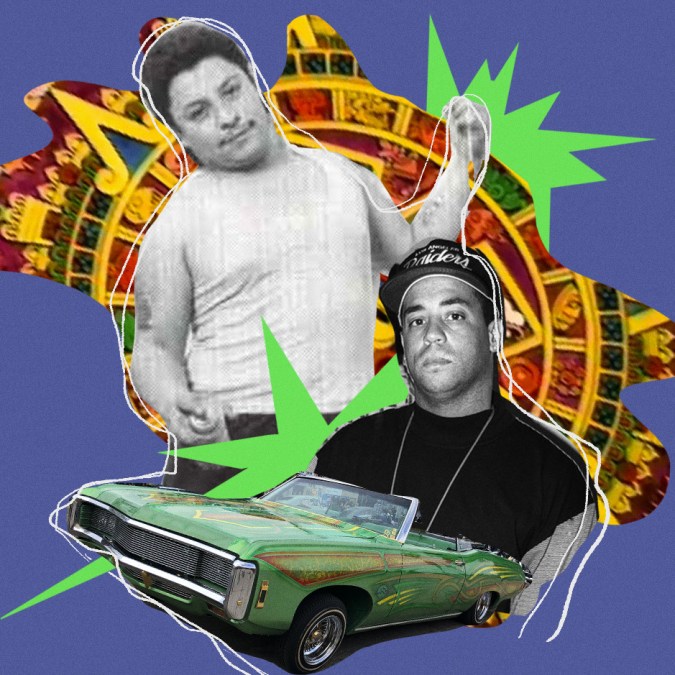
Another reason “La Raza” resonates to this day is that it made a conscious decision not to pander. While “Mentirosa” was a bigger hit, “La Raza” didn’t play up Latinidad on a superficial level to be more palatable to white audiences. Even Mellow Man Ace’s image—white suit, hat, mustache; not unlike German one-hit-wonder Lou Bega of “Mambo Number 5” fame—called back to the suave mambo singers. However, “La Raza” used Spanish to connect with Latinos, not as a color to sell records but as a code only they could understand completely. It spawned other songs del barrio, like “On a Sunday Afternoon” by Lighter Shade of Brown, para el barrio.
Cypress Hill built their lyricism through the same blueprint (even if their hit “Insane In The Brain” is partially a diss to Kid Frost). Soon after, Frost and Ace joined forces with ALT to form Latin Alliance and explore their identities further through hip-hop.
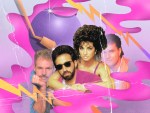
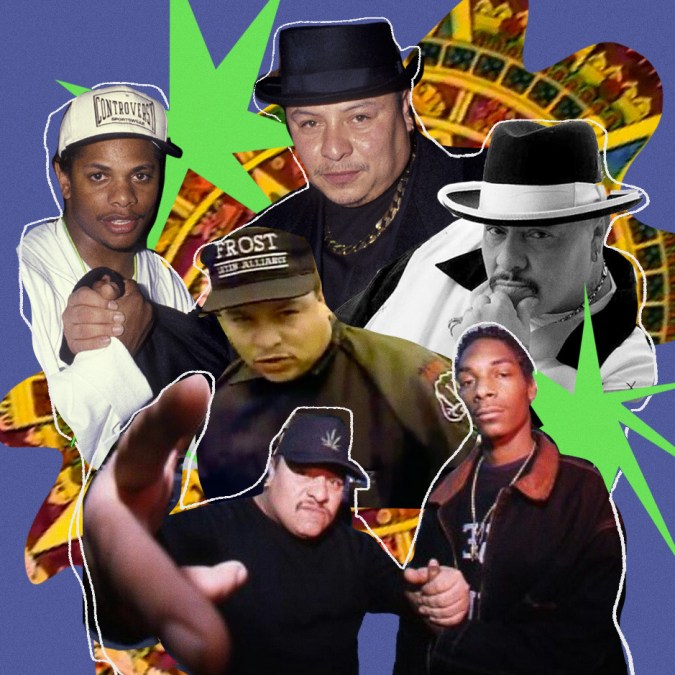
Although its cultural impact is undeniable, “La Raza” was considered a fluke in more than one way. It peaked at number 48 in the Billboard Hot 100, and had divided criticism—some thought it was a cash-grab to exploit the gangsta rap fad while others applauded its message. Since the early ‘90s, the power of “La Raza” has faded a bit from the public consciousness; while it regularly makes the list of top West Coast rap songs of all time, it’s rarely spoken about by new artists as a pivotal moment for them.
That hasn’t stopped Molina from pursuing his vision. Dropping the “Kid” from his name, Frost signed to Eazy E’s Ruthless Records, honing his approach with every subsequent record. He’s also maintained a parallel career as an actor of low budget action films like Gunmen, Dope Case Pending, and A Lowrider Spring Break En San Quilmas. In 2016, he was diagnosed with cancer but has since recovered and kept busy to this day. His son, Scoop DeVille, also keeps his legacy alive. DeVille has a stellar career of his own as a producer, most notably for the Grammy-nominated track “Poetic Justice” by Kendrick Lamar, as well as his work with legends like Snoop Dogg and Nipsey Hustle, among others. He appears in the video for “La Raza,” cradled in Frost’s arms.
“La Raza” gave Frost’s Latinx experience a gravitas through language, altering the DNA of rap’s prime weapon. It broke barriers within Latinx communities and reaffirmed their place in hip-hop history. Seeing how major a cultural shift it signified, “La Raza” needs more props.
